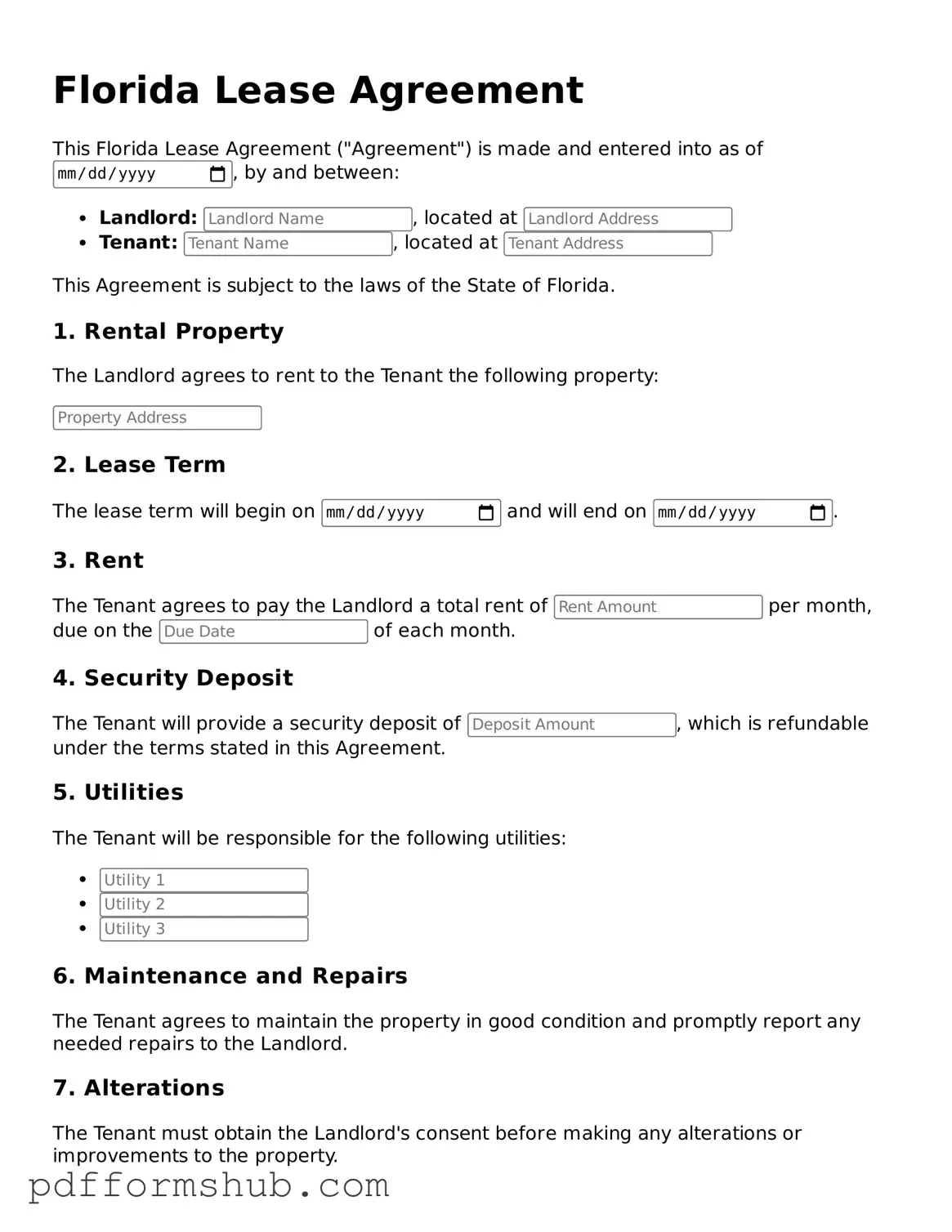Attorney-Verified Lease Agreement Form for Florida State
A Florida Lease Agreement form is a legal document that outlines the terms and conditions between a landlord and a tenant for renting a residential property. This form serves to protect the rights of both parties and ensures clarity in their agreement. If you're ready to create your lease agreement, fill out the form by clicking the button below.
Customize Form

Attorney-Verified Lease Agreement Form for Florida State
Customize Form

Customize Form
or
Free PDF Form
Short deadline? Complete this form now
Complete Lease Agreement online without printing hassles.